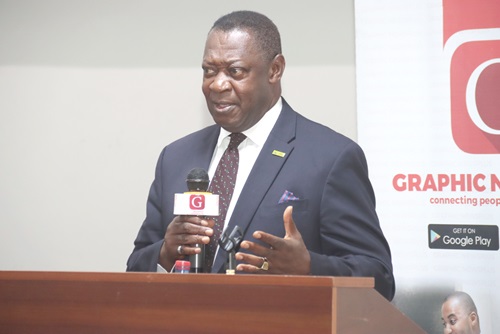
Negotiate for medical equipment rather than outright purchase - Prof. Akosa urges govt
A former Director-General of the Ghana Health Service, Professor Agyeman Badu Akosa, has urged the government to explore the option of negotiating for medical equipment rather than buying them outrightly.
He said there was a system where original equipment manufacturers (OEMs) allowed the use of their equipment while they served as suppliers of reagents that enabled the equipment to work.
Prof. Akosa said in the 21 Century, no country purchased equipment such as radiography (X-ray machines), computed tomography (CT scan) and magnetic resonance imaging (MRI) by paying for them up front.
“Nobody buys such machines, it does not need putting money up front; you can negotiate for a manufacturer to provide you with the equipment while you buy the reagents or the necessary accompaniments.
“If you go to UK hospitals, nobody buys diagnostic or laboratory machines. If you build a strong health system, you need to apply these things and this is where the government's hand is always very strong; collective willpower of the government can make some of these things really affordable,” he said.
Prof. Akosa was speaking during the second edition of the Graphic National Development Series (GNDS) in Accra last Tuesday on the topic: “Acting to prevent than cure diseases, the way to sustainable health.”
The GNDS aims to discuss issues of national interest for accelerated development.
Interest
The pathologist said due to the financial burden associated with upfront payment and how expensive equipment were, health facilities were not able to acquire them, leading to inefficient services.

The audience
He said the government did not have to buy equipment for every district hospital “but strangely, in a poor country like Ghana, we would want to buy for obvious reasons because it's not in the interest of some people to buy affordable things”.
Prof. Akosa observed that some of such decisions were usually taken without consideration for the long distances one had to travel for the services of those equipment, adding that “the cost of even the journey to access these things is another matter”.
Technology
Prof. Akosa further said that health equipment were driven by technological advancement and, therefore, the need for the nation to research more and come up with viable alternatives to facilitate quality health care for the people.
“When we were students, there was only X-ray and ultrasound machines. Later came CT scans, then MRI scans, and now there are many others,” he said.
Drug compliance
Prof. Akosa also observed that the youth had a huge compliance of drug issues which he said was one of the reasons for the increase in hypertension, stroke, heart, diabetes and chronic kidney disease cases.
“I think that the whole brouhaha about the renal dialysis brought home the fact that chronic renal disease is a big problem here. And let me just give you some snippets of why it has become a problem.
Look, young men have a huge compliance issue with drugs. “You prescribe drugs for someone to take for seven days, the person takes it for two days and that is it,” he added.
